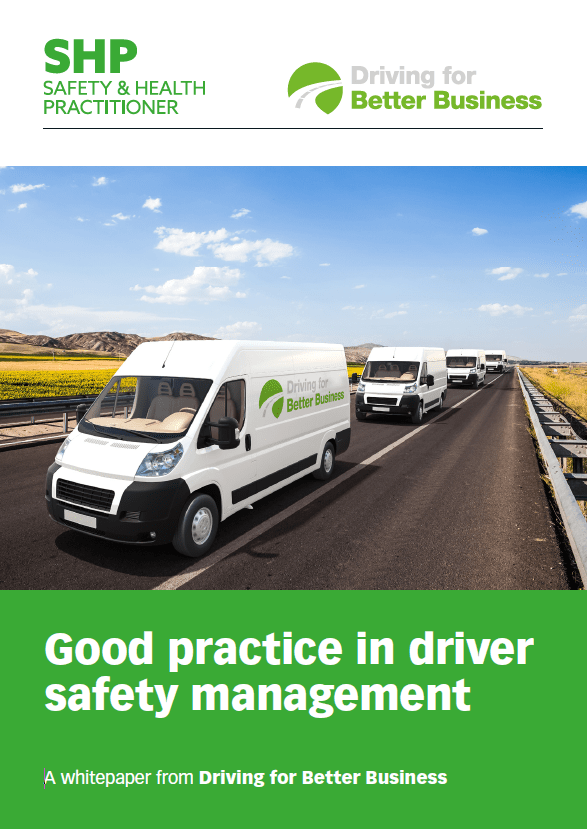81% of UK workers do not feel as though they achieve enough sleep. In this article, Marcus de Guingand, from Third Pillar of Health, discusses some of the data from a recently released whitepaper looking at the extent, impact and causes of tiredness and fatigue in different worker groups.
 “Third Pillar of Health released a whitepaper, entitled ‘Sleep and fatigue in UK working populations’, at the back end of 2020. We used responses from over 5,700 participants in our popular sleep health self-assessment – run with workers from over 35 companies, which helps organisations understand the extent, impact and causes of tiredness and fatigue in different worker groups and provides individuals with immediate feedback via a personalised report helping them understand how to improve their sleep and personal energy.
“Third Pillar of Health released a whitepaper, entitled ‘Sleep and fatigue in UK working populations’, at the back end of 2020. We used responses from over 5,700 participants in our popular sleep health self-assessment – run with workers from over 35 companies, which helps organisations understand the extent, impact and causes of tiredness and fatigue in different worker groups and provides individuals with immediate feedback via a personalised report helping them understand how to improve their sleep and personal energy.
“We know from data collected across the developed world, that the quantity and quality of sleep has declined steadily in recent years, but our whitepaper lays bare the state of sleep and fatigue in UK workers and how much this is costing UK businesses. Some of the key findings include:
- Average sleep prior to work is just six hours 20 minutes, well below the minimum recommended seven hours;
- 66% of workers sleep less than seven hours before work;
- 81% of UK workers do not feel as though they achieve enough sleep with work and personal worries common contributing factors, as well as not having enough time and shift schedules;
- 50% of workers are ‘at risk’ of insomnia, 22% obstructive sleep apnoea and 10% restless leg syndrome
- 63% of workers who drive as part of their commute drive whilst drowsy at least a few times a month.
“These figures point to a potential hidden problem for UK employers.
“We should acknowledge that 60% of our participants work shifts (versus the UK average of 19%) and that for the most part our survey was run on a voluntary basis, meaning those participating likely had a greater interest in their own sleep.
“Some of the other interesting insights to come from our research include that:
- Sleep is potentially disrupted by work and / or personal worries for 36% of UK workers;
- Workers averaging less than seven hours sleep prior to work are at much higher risk of driving whilst drowsy during their commute, with construction and policing workers particularly affected;
- 38% of workers said they have had an accident or near miss commuting because of drowsiness;
- 35% of workers obtain less than six hours of sleep prior to work.
“This final point is interesting because when we look at the ORR rule of thumb guidelines this means we can expect impaired performance in 35%of UK workers. This figure is 39% of shift workers and 28% of day workers. This is a very significant proportion of the workforce.
“We also looked at the potential cost to UK employers based on figures in RAND Europe’s ‘Why sleep matters. The costs of insufficient sleep.’ These costs relate solely to absenteeism and presenteeism from short sleeping. They do not take in to account poor quality sleep or the other individual, organisational and societal costs which will significantly increase the costs of poor sleep.
“Short sleeping is costing the UK economy £11.8bn per annum solely in absenteeism and presenteeism. That works out at £36,011 per 100 workers each year.
“We drilled down in to 4 industries where we have more data – transport, construction, policing and services. We found that the cost to policing is £55,975 per 100 workers, transport is £50,263, construction is £45,837 and professional services is £24,7655.”
‘Click here to access the ‘Sleep and fatigue in UK working populations’ whitepaper.’
Driver safety webinars
 Hear Marcus speak about driver fatigue on a panel debate, ‘Understanding and influencing drivers’ attitudes and behaviour to reduce risk sponsored’, part of SHP’s Webinar Wednesday series.
Hear Marcus speak about driver fatigue on a panel debate, ‘Understanding and influencing drivers’ attitudes and behaviour to reduce risk sponsored’, part of SHP’s Webinar Wednesday series.
In a seperate session, learn about ‘Managing work-related road risks: responsibilities, policies & mistakes’.
Click here to listen back, on-demand, to the rest of the Webinar Wednesday programme.
This eBook will guide you through some of the key understandings you need to be able to manage driver safety effectively and, at the end, provide a series of free resources you can access to help you ensure your own driver safety management system is robust, legally compliant and in line with industry-accepted good practice.
Download this eBook from Driving for Better Business and SHP to cover:
- Why do we need to manage driver safety?
- Duty of care – a shared responsibility;
- Setting the rules with a driving for work policy;
- Managing driver safety;
- Ensuring safe vehicles;
- Safe journeys and fitness to drive;
- Record keeping;
- Reporting;
- The business benefits of good practice;
- Additional resources

 “Third Pillar of Health released a whitepaper, entitled ‘
“Third Pillar of Health released a whitepaper, entitled ‘ Hear Marcus speak about driver fatigue on a panel debate, ‘
Hear Marcus speak about driver fatigue on a panel debate, ‘